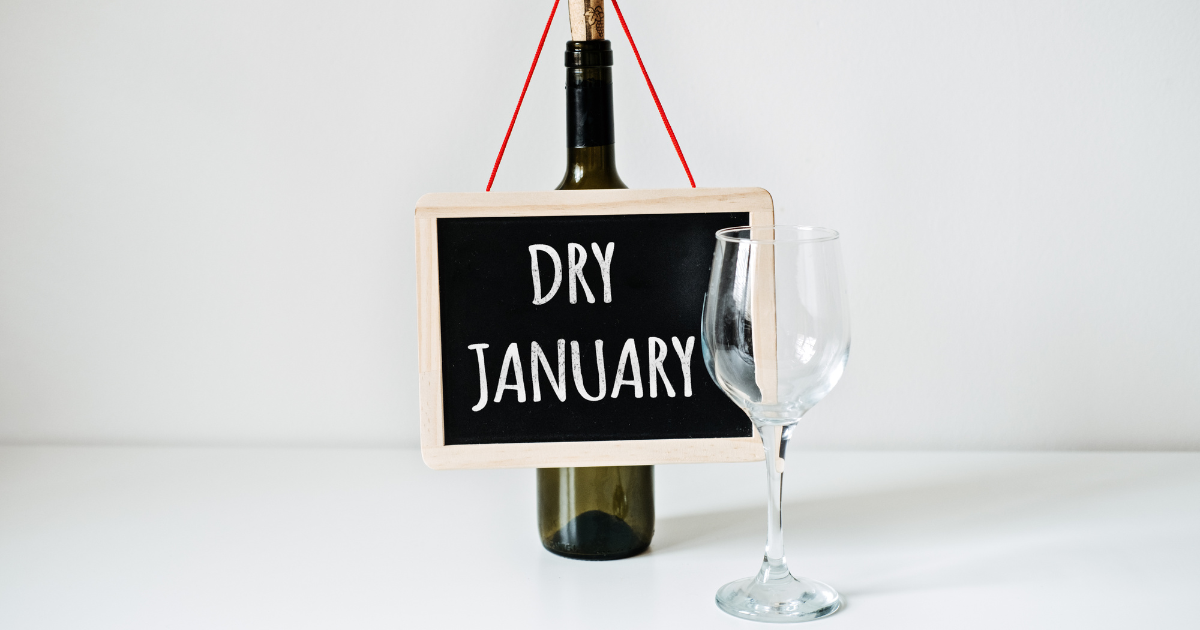Dry January has grown in popularity in the last several years. A month-long cessation from drinking can be a helpful tool for people to understand how their alcohol use impacts their life and health. But what can you expect to happen when you start drinking again after Dry January?
The Health Effects of an Alcohol-Free January
Researchers from the Royal Free Hospital in London have shown that when moderate drinkers stop drinking for just a month, they can experience various health benefits.1 In a sample of 280 drinkers who abstained from all drinking for a single month, they found:
- An average weight loss of 6.6 pounds
- A 40% reduction in liver fat
- Reduced cholesterol
- Lower blood glucose levels
The explanation for these effects is clear: alcohol is a highly caloric substance that provides no necessary vitamins, minerals, or nutrients. Alcohol is essentially an “empty” calorie, which, when removed, can result in rapid weight loss.
We also know that alcohol is processed in the liver and that long-term alcohol use can build up fatty liver cells. This can lead to the development of alcoholic fatty liver disease. If this is left untreated, it can further develop into alcoholic hepatitis and, ultimately, liver cirrhosis.
Alcohol use has also been associated with an increased risk of cardiovascular disease due to its processing in the liver.2 After alcohol enters the body, it’s broken down in the liver and rebuilt into triglycerides and cholesterol. When your triglyceride levels get too high, the liver cannot process cholesterol effectively, causing cholesterol levels to rise.
What Happens After Dry January?
In addition to the positive health effects, researchers have found that a single month without drinking can also help change people’s relationship with alcohol. Dry January offers people an opportunity to notice how alcohol affects their lives, something that moderate drinkers may not pay much attention to from day to day.
Ask yourself what went differently during Dry January. Did you…
- Notice yourself craving a drink during certain situations?
- Consider reaching for a glass of wine to decompress after a hard day?
- Feel more energetic while being abstinent?
- Notice the quality of your skin change from not drinking?
- Struggle to stop drinking for the first weeks of January, and did it get easier as the month went on?
- Find your social interactions with others changing while you weren’t drinking?
When researchers asked questions like these to thousands of participants, they found that many people experienced many psychological benefits after successfully completing Dry January. Participants reported feeling more able to refuse drinks in the future, having improved sleep, more energy, better skin, and drinking less in months after Dry January.3
Do You Really Need Alcohol?
A common question that people ask themselves after completing Dry January is, “Do I really need alcohol or get any benefits from it?” Of course, the answer to this question is different for everybody. If you’ve noticed that your drinking habits are affecting your physical or mental health, you may consider continuing into Dry February, Dry March, or even a Dry Year.
Despite what you may hear from a morning talk show, no level of alcohol use is beneficial for your physical health. Alcohol is a known carcinogen and has several harmful physical and mental health effects, especially if you binge drink.
Some people may simply enjoy the recreational effects of alcohol, and that’s okay. Still, a Dry January can bring to light what motives for drinking are unhealthy and how you can change your habits for the better in the future.
Did You Struggle to Stop Drinking?
Dry January is typically focused on helping people without alcohol problems. If you attempted to quit for 31 days and found that you couldn’t, you may be living with an alcohol use disorder. Alcohol rehab at Wolf Creek Recovery can help you overcome heavy or binge drinking and treat the withdrawal effects you may experience.
Addiction can be difficult to stop on your own, but you can recover. Call Wolf Creek Recovery to start today.
Sources:
[1] https://www.royalfree.nhs.uk/news-media/news/dry-january-results-staggering/ [2] https://www.heartuk.org.uk/low-cholesterol-foods/alcohol [3] https://alcoholchange.org.uk/publication/dry-january-evaluation-2018
Finding purpose in pain is what Jonathon does best. He is a strong advocate for those suffering from substance use disorders. As a person in recovery, Jonathon knows how important it is to receive empathy and compassion. He recognizes that each person comes from a different set of circumstances and deserves to be valued and respected.
With a fresh perspective and compassionate attitude, Jonathon works closely with clients to help them let go of the past and know when to take necessary risks. The recovery process is ongoing, which means people need to move forward while applying the skills learned in treatment. Jonathon is a great motivator when it comes time for this!
Jonathon also places emphasis on the family unit and how it can make or break the recovery experience. Individuals with active, supportive families have far better outcomes. Jonathon realizes that it’s impossible to move mountains overnight, but with the right support team and positive attitude, anything is possible.












